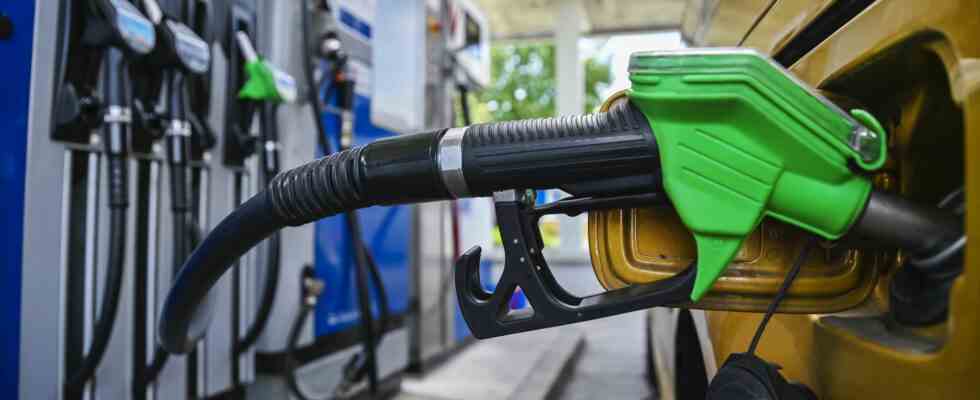As of: 02/28/2023 6:37 p.m
So far, synthetic fuel may only be mixed in Germany, but in future e-fuels will also be available in their pure form at petrol stations. According to the FDP, the traffic light coalition has agreed on this. The Liberals speak of a breakthrough, the Greens do not.
In Germany it should be possible in the future to fill up with synthetically produced fuel in its pure form. According to the FDP, the traffic light coalition has agreed to adapt the relevant laws on so-called e-fuels. “As a result, all internal combustion engines can fill up with these fuels in their pure form,” said Christian Dürr, leader of the FDP parliamentary group, and spoke of a breakthrough for climate protection.
After the change in the Federal Emission Control Ordinance, e-fuels could then be sold at the filling station and normal combustion engines could be operated with climate-neutral fuels. “Until now, that was not legally possible,” said Dürr. With the approval of e-fuels, “hundreds of thousands of jobs could also be secured in the long term,” the party said.
E-fuel production is very energy-intensive
E-fuels are produced from water and CO2 using electricity. If green electricity is used and the necessary CO2 is extracted from the atmosphere, e-fuels can theoretically be used in a climate-neutral manner. However, critics object that their production is always very energy-intensive and that e-fuels therefore have a poorer energy balance than, for example, classic electromobility.
Greenpeace, for example, described e-fuels as a waste of electricity, because classic e-cars go five times as far with the same amount of electricity.
Greens: E-Fuels – “a bogus solution”
Unlike the FDP, the Greens did not want to speak of a breakthrough. Green parliamentary group leader Katharina Dröge said cautiously that the coalition had agreed to finally rule out the use of palm oil and fossil raw materials as “paraffinic fuels”. The regulation for e-fuels in Germany will be adjusted.
So far, the use of e-fuels or paraffinic fuels has been possible up to the admixture limit of around 26 percent. “Now we have agreed on a technical adjustment that allows it to be placed on the market in its pure form. It is important for us that there is accompanying consumer information on vehicle compatibility.”
The environmental politician of the Greens, Jan-Niclas Gesenhues, described e-fuels to t-online as a bogus solution: they are inefficient and not sufficiently available.
EU wants to decide off for combustion engines
The decision of the traffic light coalition should not be confused with the plan at EU level to ban internal combustion engines in new cars from 2035. Negotiators from the EU states and the EU Parliament had already agreed on this in October – Germany also gave its approval. The final approval of the member countries should take place on March 7th.
However, Federal Transport Minister Wissing has now threatened that Germany would only agree to the end of combustion engines from 2035 if e-fuels remained permitted so that combustion engines could also be operated in a climate-neutral manner after 2035. This caused confusion in Berlin and Brussels.

